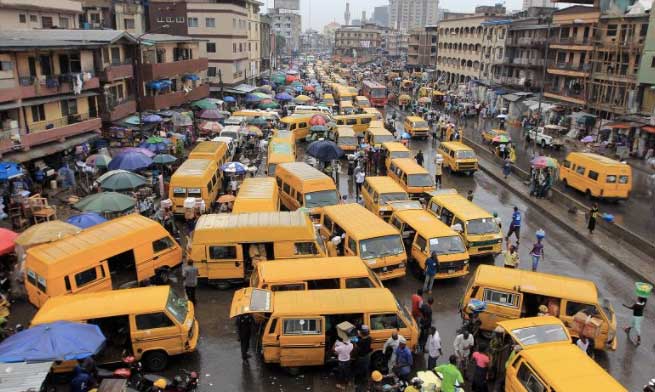Nigeria is a country with a rich history, several noteworthy events have taken place in Nigeria and some of these events have impacted the nation either positively or negatively. Here is a list of 15 noteworthy happenings in the history of Nigeria since 1914.
CREATION OF NIGERIA (1914)
The amalgamation of the northern and southern protectorates in 1914 by Fredrick Lugard established the entity known as Nigeria. After the amalgamation, the entity was subsequently given the name NIGERIA by Lugard’s wife Flora Shaw. The amalgamation has often been regarded as means of ensuring ease in British rule over Nigeria.
THE ABA WOMEN RIOT (NOVEMBER 1929)
The Aba women riot of 1929, also known as the Women war was a period of unrest in Nigeria during colonial rule. The riot was a rebellion against economic and socio-political oppression. Thousands of women traveled to the town of Oloko to protest against Warrant Chiefs, whom they accused of restricting the role of women in government. As a result of the riot, some Warrant chiefs were forced to resign. The riot could also been seen as an anti-colonial revolt against the British Government. The riot was unprecedented as women marched out on the streets in numbers to air their displeasures.
DISCOVERY OF OIL (1956)
Oil was discovered in Nigeria in 1956 at Oloibiri in the Niger Delta after half a century of exploration. The discovery was made by Shell-BP. Nigeria joined the rank of oil producers in 1958, when its first oil field came on stream, producing 5,100 barrels per day.
FIRST CONSTITUTIONAL CONFERENCE (1957)
In 1957, Nigeria’s first constitutional conference was held in London. The conference granted self-government to the eastern and western region and also established a bicameral legislature.
FIRST NATIONAL ELECTIONS (1959)
The first national elections were held to set up an independent government. The result was a victory for the Northern peoples congress, which won 134 of the 312 seats in the House of Representatives.
INDEPENDENCE (OCTOBER 1 1960)
The year 1960 is probably the most important year in Nigeria’s history because on October 1 of that year, the British Union Jack was lowered and the green white green of Nigeria was raised. This signaled the end of the British colonial administration after years of nationalist struggles led by people like Hebert Macaulay, Obafemi awolowo, Nnamdi Azikiwe and so on.
THE FIRST MILITRY COUP D’ETAT (JANUARY AND JULY 1966)
The first military coup in Nigeria was carried out on January 15 1966 by Major Kaduna Nzeogwu, Major Emmanuel Ifejunwa, among others. The casualties were Prime Minister Alhaji Tafawa Balewa, Sardauna of Sokoto Ahmadu Bello and Premiere of the Western region Samuel Akintola. The coup however did not last long as the plotters were subdued and Major General Aguiyi Ironsi annexed power. Ironsi’s tenure only lasted for six months until the counter coup, led by Major General Yakubu Gowon who assumed power as the military Head of State.
CIVIL WAR (6 July 1967 – 15 January 1970)
The civil war, also known as the Biafran war was a war between the Nigerian government and the secessionist state of Biafra led by Odumegwu Ojukwu. The conflict resulted from political, economic, cultural, religious, and ethnic reasons. The immediate causes of the war were the 1966 coup and counter coup as well as the persecution of Igbo living in Northern Nigeria. The war resulted in extreme loss of lives and properties and as well as the destruction of infrastructure. The war ended after Biafran leaders surrendered to General Yakubu Gowon on January 13, 1970.
NATIONAL YOUTH SERVICE CORPS (1973)
The NYSC scheme was set up in 1973 by decree 24 under the Gowon led government, as an avenue for the reconciliation, reconstruction and rebuilding of the nation after the civil war. It was established with the view of proper encouragement and development of common ties among the youths in Nigeria and promotion of national unity.
FESTAC 77
Festac 77, also known as the Second World Black and African Festival of arts and Culture, was a major festival held in Lagos, Nigeria from January 15 to February 12 1977. The event celebrated African culture and showcased African music, literature, religion, fine art, drama and dance. International artists such as Stevie Wonder and Mighty Sparow were invited to perform. Preparations for the festival resulted in the construction of the Festac housing estate as accommodation for about 17,000 participants.
SECOND REPUBLIC (1979)
Five political parties conpeted in a series of election in which Alhaji Sheju Shagari of the National Party of Nigeria (NPN), was elected executive president of Nigeria, ushering in the second republic.
1983 COUP
On December 31, 1983, key officers in the Nigerian military coordinated a coup, ousting the democraticaly elected government of president Shehu Shagari, and installing major General Muhammadu Buhari as Head of State.
NOBEL PRIZE
Wole Shoyinka was awarded the Nobel prize in literature in 1986, becoming the first and only Nigerian to be awarded a Nobel prize.
JUNE 12 1993
June 12 1993 was and still is a significant date in the history of Nigeria’s democracy. It was a date when what was regarded as a free and fair election was annulled by military Head of state Ibrahim Babangida. Moshood Abiola of the Socialist Democratic Party had defeated Bashir Tofa of the National Republican Convention with almost 60% of the votes. However Babangida annulled the election on the basis that there were inherent security threats of a military coup to the enthronement of a democratic government. This prompted several protests against the injustice. Till date June 12 elections is generally accepted as the best election held in Nigeria.
EXECUTION OF KEN-SARO WIWA (1995)
Writer and activist Ken-saro Wiwa and eight members of his Movement of the Survival of he Ogoni People are hanged by Abacha on November 10, 1995 after a hasty trial. This was seen as a violation of human rights and drew outrage from the international community. Nigeria was suspended from the Commonwealth, and visa restrictions were imposed by the U.S, EU, and South Africa.
ATLANTA 96
Nigeria won gold medal at the football event at the 1996 summer Olympics in Atlanta, USA in a surprising feat, defeating Argentina 4-3 in the final.
DEATH OF SANNI ABACHA (1998)
Military Head of State, Gen. Sanni Abacha died of a supposed heart attack in June 1998, causing widespread jubilation. No autopsy was carried as a result of his immediate burial, this prompted several theories around the cause of death, fueling speculations that he may have been murdered by political rivals through poison.
1999 ELECTIONS
The 1999 elections ushered in the fourth republic as well as ended military rule in Nigeria. It was the first election since the 1993 military coup led by Sanni Abacha. The result of the election was a victory for Olusegun obasanjo of the PDP who defeated Olu Falae.
SHARIA LAW ESTABLISHED (2000)
Sharia law was adopted by several northern states in the face of opposition from Christians. Tensions over the issue resulted in hundreds of deaths in clashes between Christians and Muslims.
MISS WORLD 2001
Nigeria’s own Agbani Darego became the first native African to claim the Miss World title in 2001 in South Africa.
RELOCATION OF THE MISS WORLD BEAUTY PAGEANT (2002)
In November 2002, more than 200 people died in four days of rioting caused by Muslim fury over the planned Miss World beauty pageant in kaduna. The event was relocated to Britain.
BAKASSI PENINSULA (2002)
On October 10 2002, the International Court of Justice (ICJ) ruled against Nigeria in favor Cameroon over the disputed oil-rich Bakassi peninsula territory.
NigeriaSat – 1 (2003)
In September 2003, Nigeria’s first satellite, NigeriaSat – 1, was launched by Russian rockets.
BANKING REFORMS (2004)
Professor Charles Soludo, president of the Central Bank of Nigeria in 2004 introduced reforms in the banking sector and economy. This was done in order to strengthen the competitive and operational capabilities of banks in Nigeria, as well as return global confidence in the Nigerian banking industry. The reforms saw most of the existing banks merging with each other.
NASS VOTE AGAINST REMOVAL OF TERM LIMITS (2006)
After a prolonged and determined campaign to allow President Olusegun Obasanjo a third term, the Nigerian National Assembly came to a unanimous vote against the proposed plan, refusing to change the provisions of the constitution. This ended any hope of increasing the stipulated tenure of two terms of four years each for the president.
FIRST KIDNEY TRANSPLANT (2009)
In 2009 the first ever kidney transplant in Nigeria was successfully carried out at the St. Nicholas Hospital, in Lagos, Nigeria.
PRESIDENT UMAR YAR’ADUA DIES (2010)
President Yar’adua was pronounced dead on May 5 2010 after a prolonged illness. Vice President Goodluck Jonathan, already acting president, succeeds him.
EBOLA IN NIGERIA (2014)
the deadly virus was introduced into Nigeria on July 20, 2014 when an infected Liberian-American man named Patrick Sawyer arrived by aeroplane into Lagos. The outbreak resulted in a frenzy exaggerated theories on prevention remedies, as well as increased knowledge, hygiene, and a change in social interactions. The crisis also birthed heroes like Dr Stella Adadevoh and others who volunteered to contain spread.
KIDNAP OF CHIBOK GIRLS (2014)
The kidnap was one of the saddest moments in Nigerian history. The kidnap happened on the night of 14-15 April 2014, 276 female students were kidnapped from the government Secondary school in Chibok, Borno stste by terrorist group Boko Haram. The kidnap turned the focus of the international community on Nigeria, there were several appeals, campaigns and support from celebrities, countries and international organizations to hasten the search, rescue and release of the school girls.
2015 ELECTIONS
Buhari wins the presidential election, becoming the first opposition candidate to do so in Nigeria’s history.



